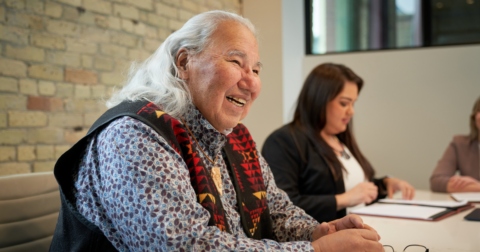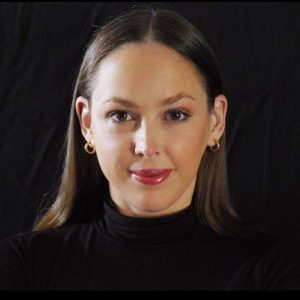Reported
FBI Records Reveal Ironic Accusations Against Animal Activists
Law & Policy•6 min read
Reported
The Honorable Murray Sinclair worked to pass The Jane Goodall Act, which would turn Indigenous teachings on animals and wildlife into law.


Words by Jessica Scott-Reid
The Honorable Murray Sinclair has stepped away from his profound professional life, but not before the former Canadian senator and Anishinaabe member of Peguis First Nation left a substantial lasting legacy as a legal and political protector of animals and nature.
The year before announcing his retirement from politics and legal practice in 2021, Sinclair introduced the Jane Goodall Act to the Canadian Senate. The Act, which hopes to put in place some of the strongest legislation for captive animals ever seen in Canada, was later reintroduced by Cree Métis senator Marty Klyne in 2022.
Sinclair, who was the former chairman of the Indian Residential Schools Truth and Reconciliation Commission, also sponsored the ground-breaking Ending the Captivity of Whales and Dolphins Act in Canada, known as the Free Willy Bill, which passed into law in 2019. His interest in protecting animals is deeply rooted in his Indigenous teachings — an obligation to educate the public on Indigenous views of respecting land and animals.
In a press conference, Sinclair stated that The Jane Goodall Act was meant to build on the Free Willy Bill. Today, the act –which would put new legal restrictions on how zoos operate in Canada, and on which animals can and cannot be held in captivity, banning new (but not existing) captivity of great apes, big cats, elephants, bears, wolves, seals, sea lions, walruses, certain monkeys and certain reptiles — remains before the senate.
The Free Willy Bill endured years of scrutiny before it passed, due in great part to continued criticism and filibustering from conservative senator and leader of the opposition, Don Plett. Thanks to relentless pressure from animal advocates including Sinclair though, the bill did eventually make it into law.
Today, the Jane Goodall Act faces much of the same roadblocks from Plett. So far the bill has been debated a staggering 14 times, with Plett arguing that zoos provide important conservation and research services. After claiming to have visited 10 captive animal facilities, Plett stated after the bill’s second reading: “These keepers said they don’t like calling it captivity because it’s not captivity; it’s human care.”
For Sinclair, introducing The Jane Goodall Act was a way to “ensure the general subject of animal welfare came to the attention of the senators and parliamentarians in a very significant way.” More specifically, he adds, “it would be a very important step to take as human beings to protect those creatures — those beings — and to ensure that we showed respect to them in that way.”
Reflecting on his involvement in both the Jane Goodall Act, and the successful Free Willy Bill, Sinclair says, “the subject matter of saving animals, of protecting animals, is very dear to my heart because my teachings as an Indigenous person […]are very strong that we are closely connected to the earth, that we are closely connected to the water and closely connected to all beings and creation, including the animals.”
Humans need to be more cognizant of the fact that we have an “obligation to treat [animals] with respect, because they do with us,” adds Sinclair. In that press conference, Sinclair also called Goodall a “hero to animals and animal-rights advocates, to the environment and to my grandchildren.”
Sinclair applies Indigenous ways of thinking to issues around the environment, climate change and industrialized animal farming. When looking at an acreage of land for example, he says “instead of thinking about how much this parcel of land can support, we think about how big of a building, how big of a structure we need to build to pack all those animals in, and to change the way they are allowed to live so that they are most useful to us.” In other words, it all comes down to “resource extraction – the sale of meat.”
We need to stop turning animals in our food system into objects of a factory, he adds, “stop taking this factory mentality.” It’s not only destructive to the animals, says Sinclair but — “we are also being destructive to ourselves.”
Animal agriculture contributes around 14 percent of global greenhouse gas emissions — not to mention water pollution and land and ocean degradation. Further, Sinclair points to overfishing, as well as biodiversity loss when we introduce non-native animals to new environments that “they are not related to” — like cattle. Again and again, humans are disrupting animals and subsequently environmental balance.
“We have the ability to do a great deal of damage to animals, and we shouldn’t,” Sinclair says. “This calls for a significant degree of self-control and moderation, and we haven’t been showing that. We have attacked the animal world so badly that it is out of balance with the environment, and the animal world is not able to perform its function and its role to allow the environment to flourish.”
To re-establish that much needed natural balance and to repair our relationship with the animals, Sinclair points to options within established Western systems, like the legal system, including granting legal status to waterways and other parts of nature in order to keep them legally protected.
In 2021, the Mutuhekau Shipu, a 120 mile waterway in Quebec was declared a legal person by the Innu Council of Ekuanitshit and the Minganie Regional County Municipality. The river now has nine rights including the right to maintain biodiversity, to be free of pollution and to sue.
According to National Geographic, while this is a first in Canada, “it is part of a global, Indigenous-led campaign echoing the rights of nature movement, which aims to provide concrete protections for the natural landscape.” In recent years, other rivers in New Zealand, the United States and Colombia have also been granted legal personhood.
Sinclair also points to Indigenous land sovereignty as a means to help reestablish balance with and within the natural world. “What it’s going to take is for Indigenous people themselves standing up for beings of creation that they have sovereignty over,” he says, “protecting the beings within their own sovereign territory.”
Ultimately, the way forward Sinclair says is to step away from capitalism, and toward Indigenous teachings. “One of the primary teachings that almost all Indigenous societies follow is one of respect,” he says, “so you have to respect the creation that is around you, the beings of creation. And the way you show that respect is to ensure you don’t damage their world and you don’t damage them.”
Sentient Media’s Indigenous Voices for Saving Animals and Earth is a collection of essays illuminating important perspectives from Indigenous peoples, including traditional knowledge from the past and proposed solutions for the future. Edited by Jessica Scott-Reid, this project tackles land and water sovereignty, factory farming, food systems, veganism, colonialism, reconciliation and more, through a variety of Indigenous lenses.